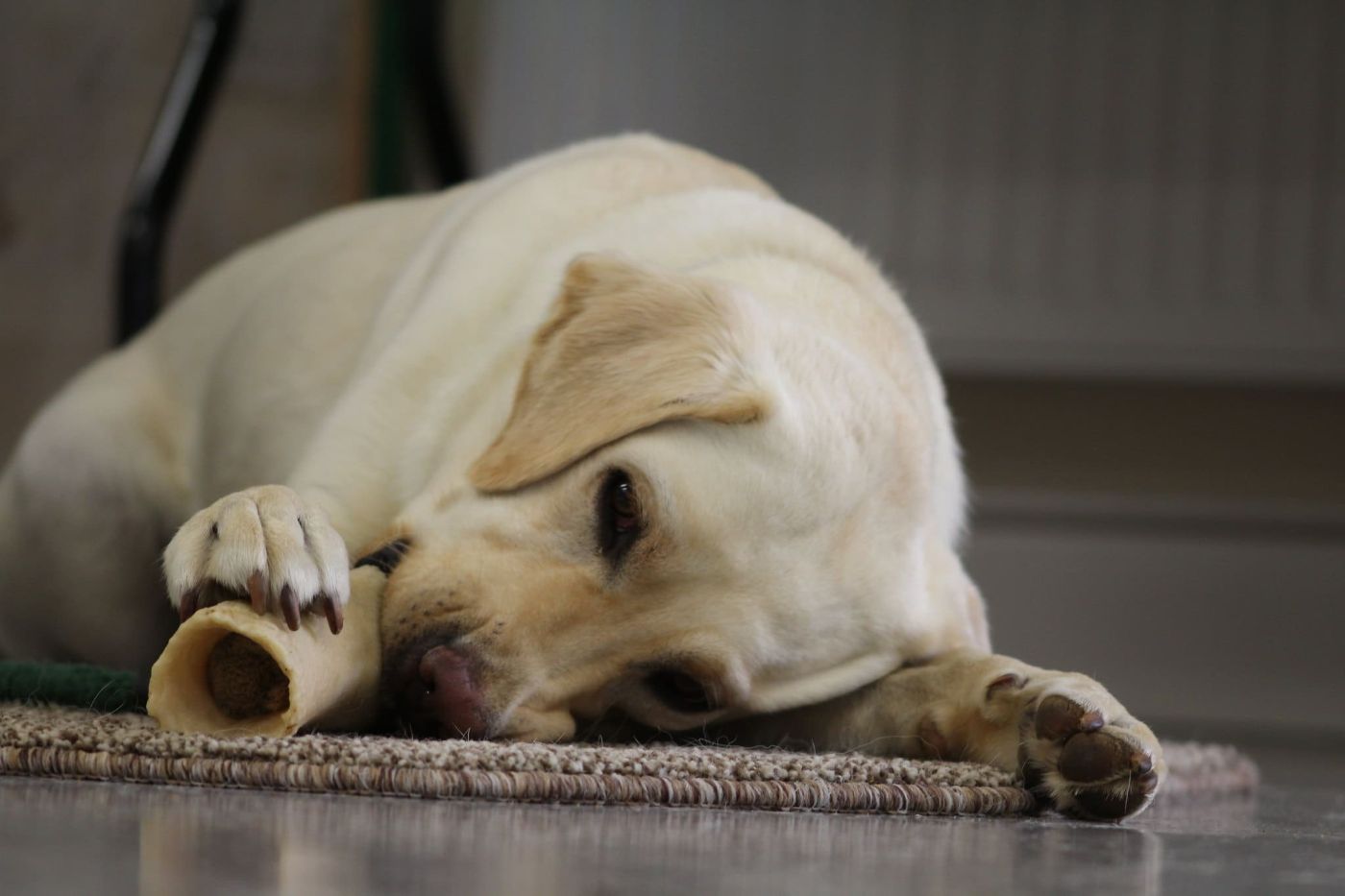
Like it or not, fireworks remain a popular form of entertainment. While some dogs barely notice the bangs, pops and flashes, many find them frightening and can become anxious or stressed.
Because fireworks season seems to start earlier every year, it’s a good idea to begin preparing your dog well before Bonfire Night so they can cope more comfortably when the noise begins.

How to prepare for bonfire night when your dog is scared of fireworks
- Start early - Begin getting your dog used to the sounds of fireworks well in advance. You can buy or stream sound recordings, many of which are free online. Play them quietly in the background while your dog is doing something enjoyable, like eating or playing. Gradually increase the volume and vary the times of day. If your dog shows signs of worry, stop the sounds, distract them with play or treats, and only try again once they’re calm, reducing the volume and keeping the experience positive.
- Use calming aids - Try plugging in an Adaptil diffuser a few days before fireworks are expected. It releases pheromones similar to those produced by a mother dog, helping to promote a sense of calm.
- Create a safe space - Make sure your dog has a quiet, comfortable place to retreat to if they need it. Some dogs prefer their space covered with a dark blanket to make it feel more secure and den-like.
- Plan ahead - Check the dates and times of local fireworks displays and speak to your neighbours about their plans so you can prepare accordingly.
- Secure your garden - Never assume it’s escape-proof. A frightened dog can easily find a way out, so check for loose hinges, gaps or weak points in fences and gates.
- Stay safe outside - Keep your dog’s collar on during fireworks season and ensure their ID tag and microchip details are up to date. If you need to take them outside, always use a lead, even for quick toilet breaks. It’s better to be safe than sorry.
How to help your nervous dog on bonfire night
- Adjust your evening routine - try to bring your dog’s evening routine forward. Walk them while it’s still light to reduce the chance of fireworks taking them by surprise, and avoid going out later if you can. Feed them early too, as dogs that become anxious are less likely to eat once fireworks start. An early dinner and toilet break can help things stay calmer later in the evening.
- Close up the house - as darkness falls, shut doors and windows and draw the curtains to reduce noise and flashes of light.
- Add background noise - turn on the radio or television slightly louder than usual to help mask the sounds of fireworks outside.
- Stay calm - it’s natural to worry, but your dog will take cues from you. Try to remain relaxed and keep your behaviour as normal as possible, if you’re calm, your dog is more likely to feel reassured.
- Provide distraction - offer a filled Kong, a new chew or an enrichment toy to keep your dog busy and happy. If your dog enjoys learning, a short training session or teaching a new trick can also help keep their focus on you
- Try gentle pressure - some dogs find comfort in firm, steady pressure. A product like a Thundershirt can help them feel more secure during stressful times.
- Respect their safe space - if your dog chooses to hide behind the sofa or under the bed, leave them there. They’ve chosen that spot because it feels safe, and they’ll come out when they’re ready — just as we might hide behind a cushion during a scary film.
- Avoid firework displays - even if your dog seems relaxed at home, being outside near fireworks is very different. It can be overwhelming and frightening, so it’s best to leave them safely indoors.
- Be patient and understanding - a frightened dog may growl, bark or even snap out of fear. Never punish them for being scared. Instead, give them space, stay calm, and help children understand that their dog needs quiet and reassurance.
Help support our life-changing work...
Imagine if everyday tasks were so challenging or physically demanding they affected your quality of life. For many people living with a disability or families with a child with autism, that is their reality. Now imagine if a specially trained four-legged friend could restore your, or your family’s, independence.
The demand for our services is high and we can’t help as many people as we would like to without more funding. Please help us continue to bring people and dogs together to help make everyday life possible in so many extraordinary ways.
Every contribution, whatever size, is important and helps us make a difference.
